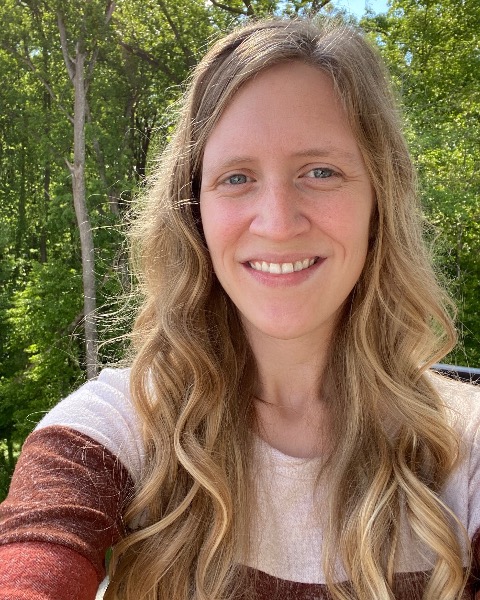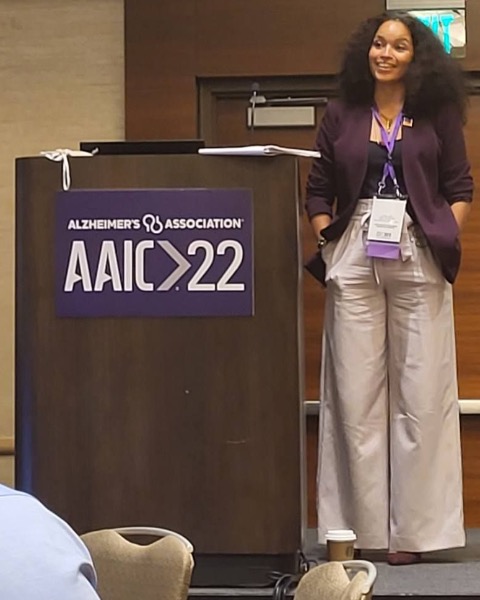Program Area: Health Sciences
ESPO and Health Sciences Section Symposium: Including Diverse Stakeholders in Health Intervention Design: Lessons Learned for Advancing Health Equity
-
.jpg)
An Nguyen, OTD, OTR/L
Project Scientist
Physical Medicine & Rehabilitation
Cedars-Sinai Medical Center
Los Angeles, California, United States -

Kyle Moored, PhD (he/him/his)
Assistant Scientist
Epidemiology
Johns Hopkins Bloomberg School of Public Health
Baltimore, Maryland, United States -

Kyle Moored, PhD (he/him/his)
Assistant Scientist
Epidemiology
Johns Hopkins Bloomberg School of Public Health
Baltimore, Maryland, United States -
QC
Quinton Cotton, MSSA
Geriatrics and Gerontology
University of Wisconsin School of Medicine and Public Health
Madison, Wisconsin, United States -

Breanna Crane, BS
PhD Candidate
Mental Health
Johns Hopkins Bloomberg School of Public Health
Baltimore, Maryland, United States -
Hd
Homero del Pino, PhD, MS (he/him/his)
Associate Professor
Psychiatry and Human Behaviors
Charles R. Drew University of Medicine and Science
Los Angeles, California, United States -

Mirella Díaz-Santos, PhD
Assistant Professor
Neurology and Psychiatry
University of California, Los Angeles
Los Angeles, California, United States -

Melody Schiaffino, PhD, MPH
Associate Professor
Public Health
San Diego State University
San Diego, California, United States
Chair(s)
Co-Chair(s)
Discussant(s)
Individual Symposium Abstract First Author(s)
The COVID-19 pandemic exposed persistent disparities in the effectiveness of healthcare services and long-term care among the older adult population. For example, significant gaps disproportionately affected older adults living in rural areas, racial and ethnic minorities, individuals with cognitive impairments, and those from low socioeconomic backgrounds. To improve health equity, research is needed to design, implement, and disseminate health interventions that address the heterogeneity of older adults and caregivers. Reflecting on lessons learned from including underrepresented key stakeholder groups in intervention research may reveal strategies to design health interventions that are more accessible and effective for diverse populations of older adults and their caregivers. This symposium highlights five studies that included diverse populations of older adults and/or caregivers in the design of health interventions. Dr. Schiaffino will share how disparities in co-morbid cancer and dementia across racial, ethnic, and age groups will inform improvements to care delivery processes for this population. Ms. Crane will discuss barriers to designing exergame interventions that are accessible to older adults with multiple chronic conditions and functional limitations. Dr. Díaz-Santos will describe results of piloting and refining a social connection intervention to reduce loneliness among Latinx older adults at risk for dementia. Dr. del Pino will highlight strategies to improve implementation of a screening intervention for at-risk drinking among African American older adults living with HIV. Mr. Cotton will present results of tailoring a crisis intervention to improve cultural fit for African American caregivers of people with dementia.
Learning Objectives:
- After attending this session, participants will be able to describe ways in which aspects of heterogeneity in the older adult population impact health intervention design.
- Participants will be able to identify barriers to the effectiveness of health interventions for diverse populations of older adults.
- Participants will be able to outline strategies that researchers used to design health interventions that address the needs of diverse populations of older adults.
Presentations:
-
4:30 PM – 6:00 PM ETEngaging a Community Advisory Board to Validate a Culturally Tailored Intervention Model
Individual Symposium Abstract First Author: Quinton D. Cotton, MSSA – University of Wisconsin School of Medicine and Public Health
-
4:30 PM – 6:00 PM ETIncluding Feedback from Older Adults with Varying Health Conditions to Inform Exergame Designs
Individual Symposium Abstract First Author: Breanna M. Crane, BS – Johns Hopkins Bloomberg School of Public Health
-
4:30 PM – 6:00 PM ETTalking about At-Risk Drinking with Older Adults Aging with HIV
Individual Symposium Abstract First Author: Homero del Pino, PhD, MS (he/him/his) – Charles R. Drew University of Medicine and Science
-
4:30 PM – 6:00 PM ETA Social Connection Health Intervention for Isolated Latinx Older Adults at Risk of Dementia
Individual Symposium Abstract First Author: Mirella Díaz-Santos, PhD – University of California, Los Angeles
